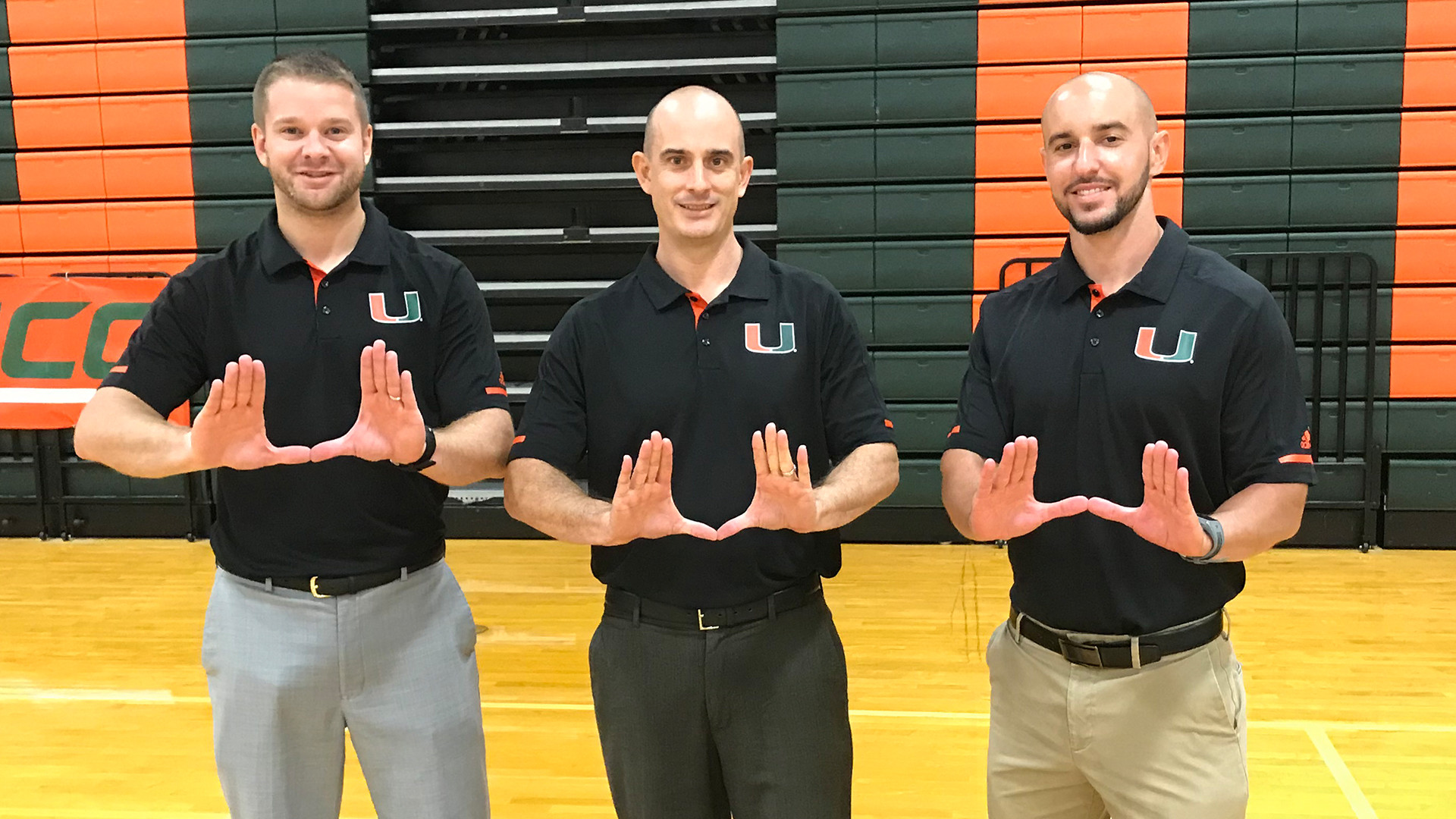
Physical Therapists Helping Canes Back to Competition
By Amy Taintor
HurricaneSports.com
CORAL GABLES, Fla. – Building champions at the University of Miami includes more than having great athletes.
Miami is committed to providing a culture of well-being for student-athletes and staff and a top-notch physical therapy department is a crucial piece to the puzzle.
Luis Feigenbaum, director of rehabilitation, is focused on building champions, all while building the physical therapy department for Hurricane athletics.
Student-athlete wellness is essential in competing at the highest level and Feigenbaum ensures that each student-athlete gets the proper rehab in order to compete to their potential.
Feigenbaum, a two-time Miami alumnus, got involved with the athletic department in 1999 while he was a graduate student in Miami’s physical therapy program.
Since that time, Feigenbaum has contributed his time to the University of Miami’s athletes by offering the highest-level of rehab in collegiate athletics.
“We have a very unique relationship here,” Feigenbaum said. “We are probably one of the only programs with the department of physical therapy on the academic side and clinical side that interacts with athletics.”
Alongside Feigenbaum, there are two other physical therapists that contribute to this program. Jeff Ruiz works primarily with Olympic sports, while Tristen Asken works mainly with the football team.
Feigenbaum, Ruiz and Asken all mentor student-interns, as well as sports physical therapy residents, in a program that is new this year. Additionally, the physical therapy department has two residents in 2017-18, Julian Rivera and Julia Rapicavoli.
“Every time I bring someone on they can take on more students, they can take on more residents. So each one of us here is a multiplier of upwards of two to four bodies of help.” Feigenbaum said.
The sports physical therapy residency program was built to provide more expertise to residents in the field of sports physical therapy. These residents are licensed physical therapists and athletic trainers.
“We’re looking to bring academic medicine into athletics and so we have the cream of the crop in terms of physical therapists who are here to help athletes get back,” Feigenbaum said. “The outcomes we have here at Miami are top-tier in terms of a resource standpoint and an outcome standpoint compared to most programs nationally.”
Depending on the severity of an injury, the rehab process can take anywhere from six to nine months and upwards of a year. With each therapy session lasting an average of one hour, one can understand why the physical therapy department has high standards when selecting residents, interns and programs.
“In order to fulfill the level that we’d expect the University of Miami athletic program athlete status to be, it requires a lot of help and a lot of expertise.” Feigenbaum said.
Feigenbaum, Asken and Ruiz all work with the athletic trainers regarding rehab plans and utilize them as a resource to communicate with the coaches and weight-room staff. Once an athlete reaches the end of their rehab, the athletic trainers become more involved with monitoring the return-to-play timeline for each athlete.
Building champions relies heavily on building the departments that focus on the development and well-being of the athletes who represent the University of Miami and Feigenbaum, Ruiz and Asken ensure they provide only the best.






